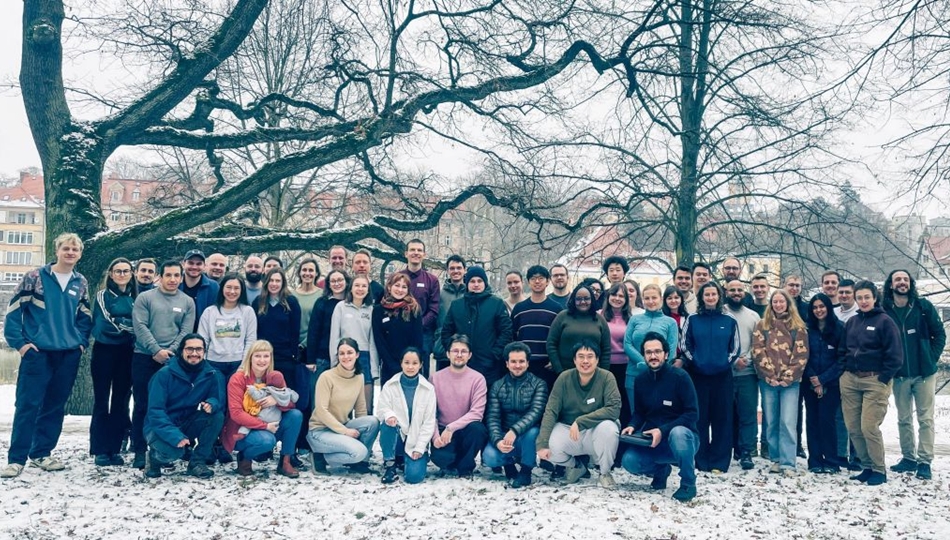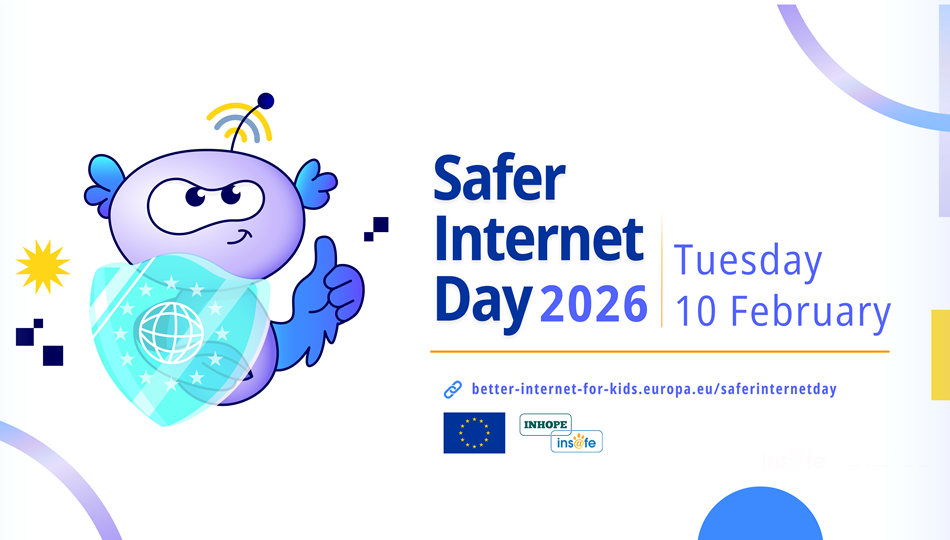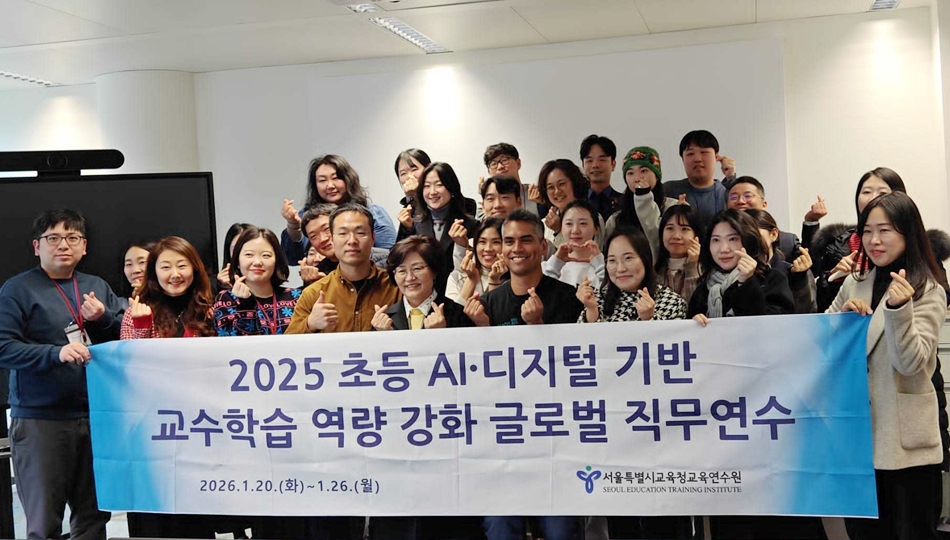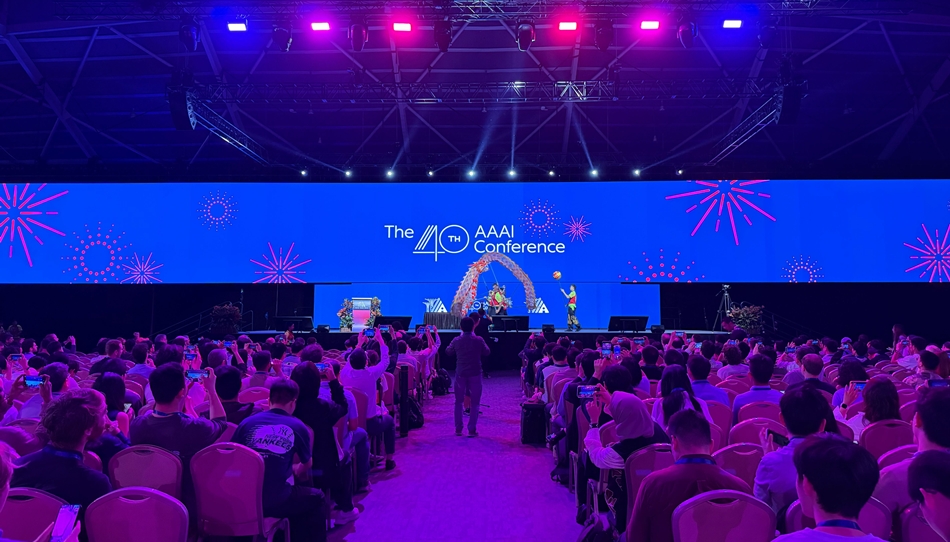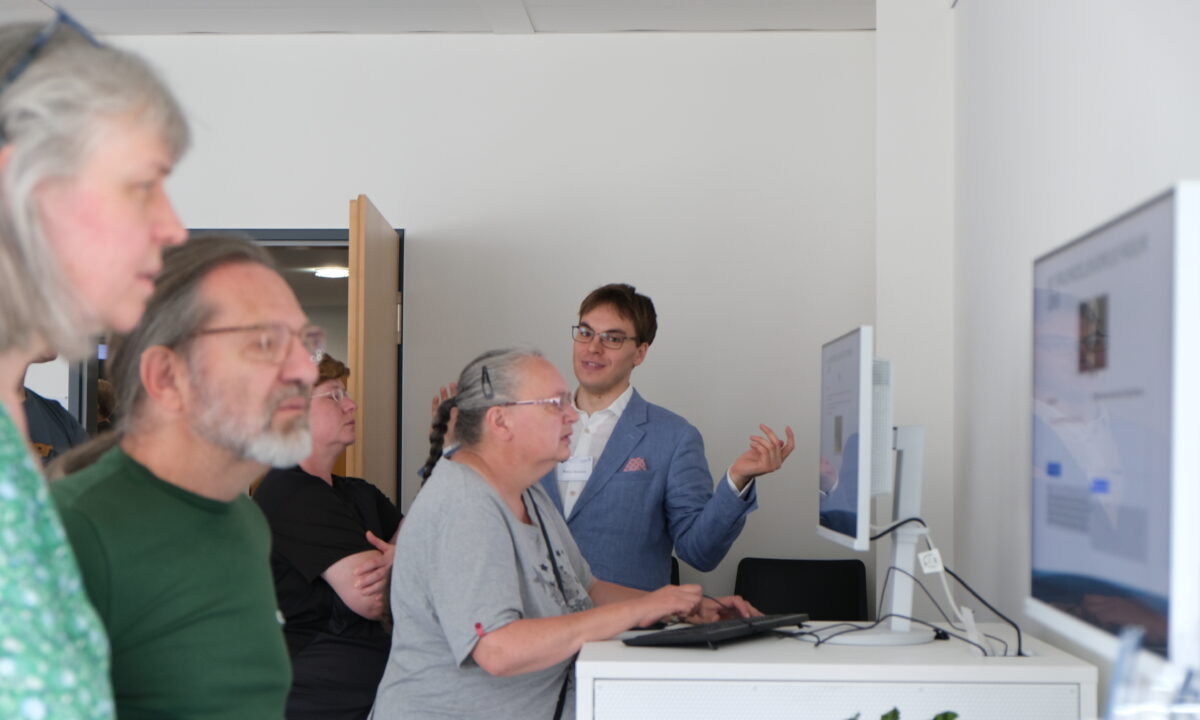
July 8, 2023
KI-Frühstück – Workshop explores the potential of modern AI systems

On 08.07.2023, about 40 participants gathered in the courtyard of VHS Leipzig for an event that was as educational as it was relaxing: the KI-Frühstück (AI-Breakfast). The workshop was the culmination of this year’s Studium Universale at Leipzig University, which explored the relationship between humans and machines.
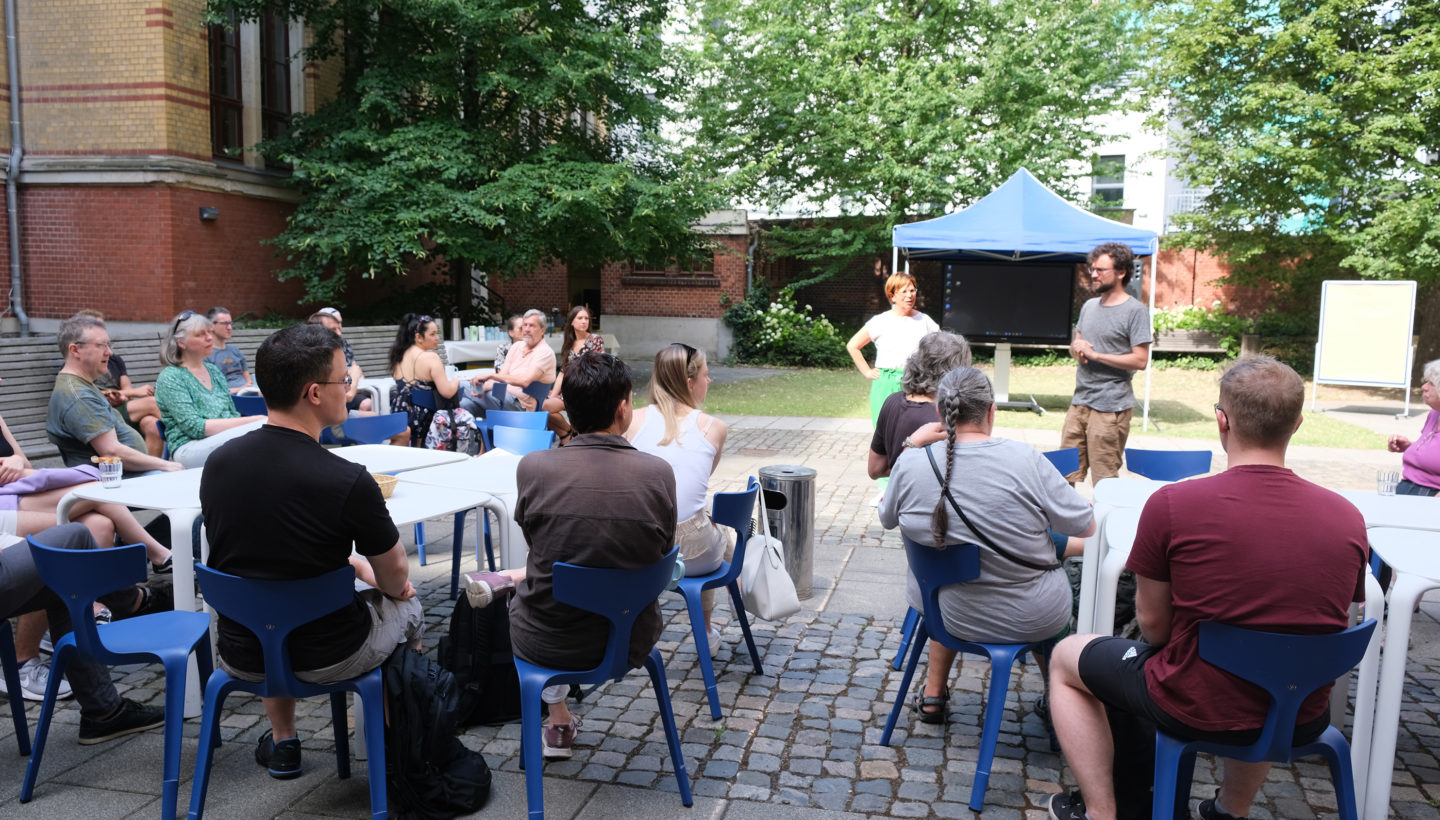
Exploring the Boundaries of Human-Machine Collaboration: A Recap of the KI-Frühstück at Studium Universale
The workshop aimed to facilitate productive collaboration between humans and advanced AI systems like ChatGPT and DALL-E 2. Participants had the opportunity to experiment with various AI technologies, including image, text and music generators. Furthermore, they were able to experience first-hand the potential of these systems.
One of the three groups formed for the workshop delved into the ScaDS.AI Living Lab. There, they engaged in complex problem solving using language models, such as ChatGPT. ScaDS.AI Dresden/Leipzig researcher Niklas Deckers provided valuable insights during his presentation, demonstrating how strategic prompt engineering can lead to better results. For example, the chain-of-thought approach provides a technique for tackling Fermi problems.
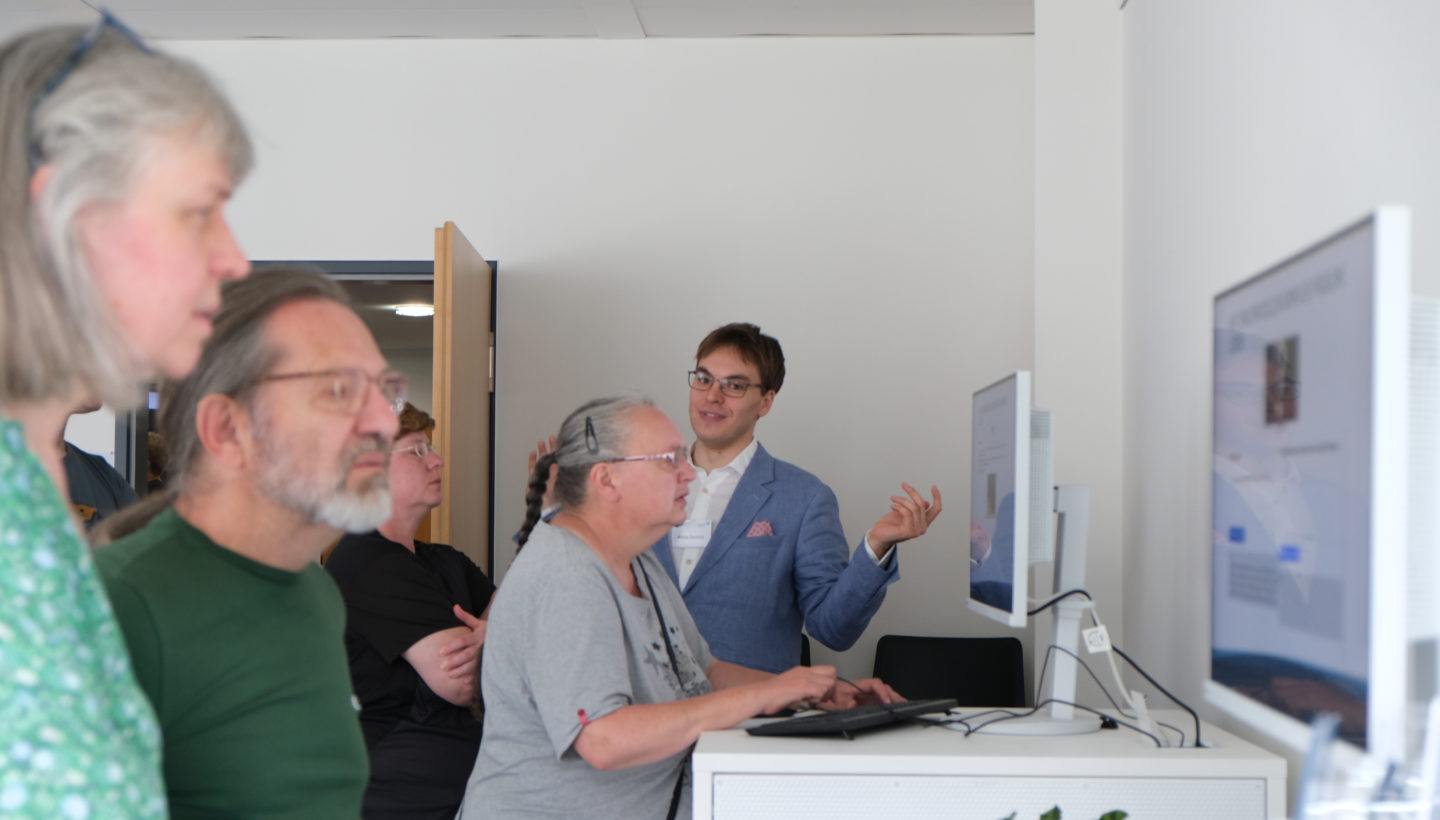
Following the individual sessions, all groups reconvened in the VHS courtyard. The participants then engaged in discussions and shared the knowledge gained during the workshop. The collaborative atmosphere was further enriched by a delightful breakfast buffet, fostering networking and idea exchange.
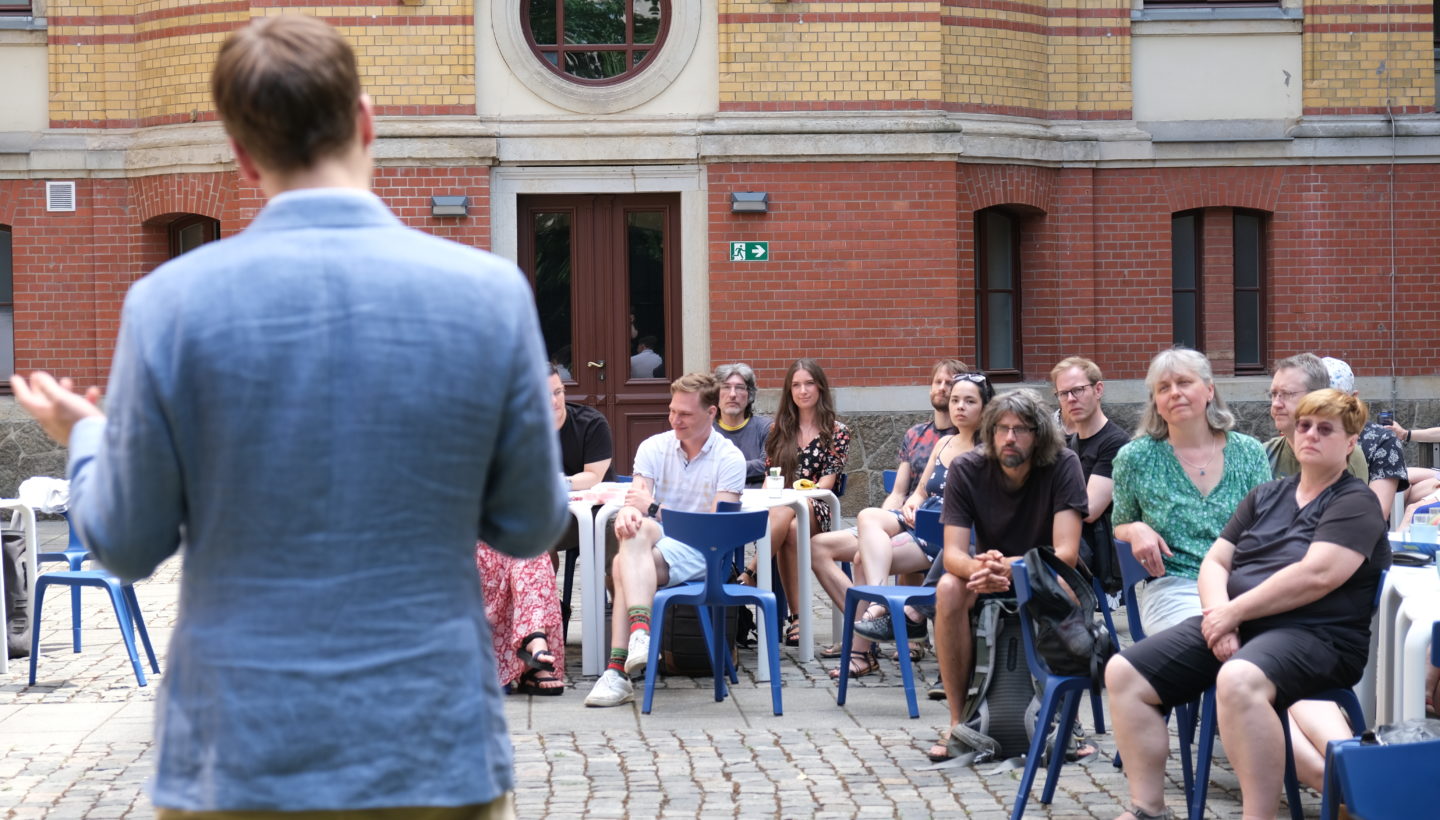
Fostering Collaborative Connections: The Dynamic Partnership behind the KI-Frühstück
The KI-Frühstück was organized in collaboration with Leipzig University, VHS Leipzig, and the ScaDS.AI Living Lab. This partnership created an immersive and interdisciplinary event. The KI-Frühstück especially promoted dialogue between the citizens of Leipzig and the university while fostering connections across different academic domains.
Studium Universale on the Topic of Human – Machine
The Studium Universale is a lecture series at Leipzig University that explores a new overarching theme each semester. It aims to examine and discuss this theme from various perspectives and disciplines. By that, it is bridging the gap between the humanities, social sciences, and natural sciences. By making scientific knowledge accessible and contributing to public discourse, the Studium Universale fosters dialogue between the citizens of Leipzig, the university, and its different academic fields.
The program of the summer semester 2023 focused on the topic Human – Machine. It explored questions surrounding the capabilities of machines, their impact on our perception of the world, and their potential to create art. In addition to dystopian perspectives, the lecture series also seeked to explore pragmatic viewpoints, considering the possibility and value of humans and machines working together as tools.
ScaDS.AI Dresden/Leipzig Principal Investigators at the Studium Universale shed light on Human-Machine Dynamics
As part of the program, three Principal Investigators of ScaDS.AI Dresden/Leipzig shared their insights and expertise at the lecture series:
Prof. Dr. Thomas Neumuth: From Reactive to Proactive Health Model: Enhancing Health through Technology (07.06.2023)
Prof. Dr. Thomas Neumuth presented a forward-thinking approach to healthcare in his talk. He introduced the concept of continuous healthcare, leveraging technologies like wearables, telecommunications, and AI to detect diseases at an early stage.
Prof. Dr. Birte Platow: Confronting God with His Perfect Image: Exploring the Relationship Between Religion and AI (14.07.2023)
Prof. Dr. Birte Platow delved into the intersection of religion and AI in her thought-provoking presentation. She explored how AI impacts human life and work, questioning the essence of being human and the role of religious beliefs in this evolving landscape.
Prof. Dr. Martin Bogdan and Dr. Sophie Adama: Brain-Computer Interfaces in Action (21.06.2023)
Prof. Dr. Martin Bogdan and Dr. Sophie Adama discussed the practical applications of brain-computer interfaces (BCIs). In their talk, they highlighted how BCIs enable individuals to control external devices solely through brain activity, benefiting conditions like locked-in syndrome, stroke rehabilitation, and enhancing learning capabilities in school children.

